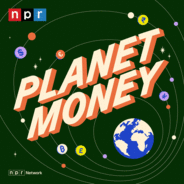The Nobel-prize winning economist Simon Kuznets once analyzed the world's economies this way — he said there are four kinds of countries: developed, underdeveloped, Japan... and Argentina.If you want to understand what happens when inflation really goes off the rails, go to Argentina. Annual inflation there, over the past year, was 124 percent. Argentina's currency, the peso, is collapsing, its poverty rate is above 40 percent, and the country may be on the verge of electing a far right Libertarian president who promises to replace the peso with the dollar. Even in a country that is already deeply familiar with economic chaos, this is dramatic.In this episode, we travel to Argentina to try to understand: what is it like to live in an economy that's on the edge? With the help of our tango dancer guide, we meet all kinds of people who are living through record inflation and political upheaval. Because even as Argentina's economy tanks, its annual Mundial de Tango – the biggest tango competition in the world – that show is still on.This episode was hosted by Amanda Aronczyk and Erika Beras. It was produced by Sam Yellowhorse Kesler with help from James Sneed. It was engineered by Maggie Luthar, fact-checked by Sierra Juarez, and edited by Molly Messick. Alex Goldmark is Planet Money's executive producer.Help support Planet Money and get bonus episodes by subscribing to Planet Money+ in Apple Podcasts or at plus.npr.org/planetmoney.Learn more about sponsor message choices: podcastchoices.com/adchoicesNPR Privacy Policy

Wirtschaft
Planet Money Folgen
Wanna see a trick? Give us any topic and we can tie it back to the economy. At Planet Money, we explore the forces that shape our lives and bring you along for the ride. Don't just understand the economy – understand the world.Wanna go deeper? Subscribe to Planet Money+ and get sponsor-free episodes of Planet Money, The Indicator, and Planet Money Summer School. Plus access to bonus content. It's a new way to support the show you love. Learn more at plus.npr.org/planetmoney
Folgen von Planet Money
355 Folgen
-
Folge vom 23.09.2023A black market, a currency crisis, and a tango competition in Argentina
-
Folge vom 20.09.2023"Based on a true story"When a group of amateur investors rallied around the stock for GameStop back in 2021, the story blew up the internet. News outlets around the world, including us here at Planet Money, rushed in to explain why the stock for this retail video game company was suddenly skyrocketing, at times by as much as 1700% in value, and what that meant for the rest of us.When movie producer Aaron Ryder saw the GameStop story — an army of scrappy underdogs, banding together to strike back against a financial system they felt was rigged against them — he knew it had the makings for a great movie. The only problem: so did a bunch of other movie producers and Hollywood studios. So Aaron found himself in the middle of a fast and furious race to make the first Game Stop movie.On today's show, one producer's quest to claim the hottest ticket in Tinseltown and the whole hidden machinery dedicated to turning a news story into box office gold. You'll never read the word 'based on a true story' the same way again.Today's episode was reported and hosted by Alexi Horowitz-Ghazi. It was produced by Willa Rubin, edited by Jess Jiang, engineered by James Willetts, and fact-checked by Cooper Katz McKim and James Sneed. Alex Goldmark is our executive producer.Help support Planet Money and get bonus episodes by subscribing to Planet Money+ in Apple Podcasts or at plus.npr.org/planetmoney.Learn more about sponsor message choices: podcastchoices.com/adchoicesNPR Privacy Policy
-
Folge vom 16.09.2023How to launder $600 million on the internetErin Plante is a private detective who specializes in chasing down stolen cryptocurrency. In March of 2022, she got the biggest assignment of her career: Hackers had broken into an online game called Axie Infinity and made off with over $600 million worth of digital money.It was the largest crypto heist in history. And now it was Erin's job to find that money and get it back. Erin's investigation would lead her to face off against some of the world's most formidable digital money launderers, whose actions would soon raise alarms at the highest levels of government — even threaten the nuclear security of the entire planet.This episode was hosted by Jeff Guo and Keith Romer, produced by James Sneed, edited by Jess Jiang, fact-checked by Willa Rubin & Sam Yellowhorse Kesler, and engineered by Maggie Luthar. Alex Goldmark is our executive producer.Help support Planet Money and get bonus episodes by subscribing to Planet Money+ in Apple Podcasts or at plus.npr.org/planetmoney.Learn more about sponsor message choices: podcastchoices.com/adchoicesNPR Privacy Policy
-
Folge vom 13.09.2023China's weakening economy in two IndicatorsIn China, data on the economy is sometimes difficult to come by. The Chinese government has put a pause on releasing some of its official economic data. But many of the stories emerging from the country paint a clear picture: the second largest economy in the world is struggling.Today, our friends at The Indicator share some of their recent reporting on China. First up, it's a special edition of the Beigie Awards focused entirely on China. What can the approach of the Federal Reserve's Beige Book - i.e. looking at anecdotes that tell us something about where the economy is headed - show us about China's economy?Then, we take a deep dive into one of the most alarming indicators in China: the skyrocketing urban youth unemployment rate.This episode was hosted by Darian Woods, Wailin Wong, and Robert Smith. The original Indicator episodes were produced by Corey Bridges with engineering by Robert Rodriguez. They were fact-checked by Cooper Katz McKim and Sierra Juarez. They were edited by Paddy Hirsch and Kate Concannon.Help support Planet Money and get bonus episodes by subscribing to Planet Money+ in Apple Podcasts or at plus.npr.org/planetmoney.Learn more about sponsor message choices: podcastchoices.com/adchoicesNPR Privacy Policy
